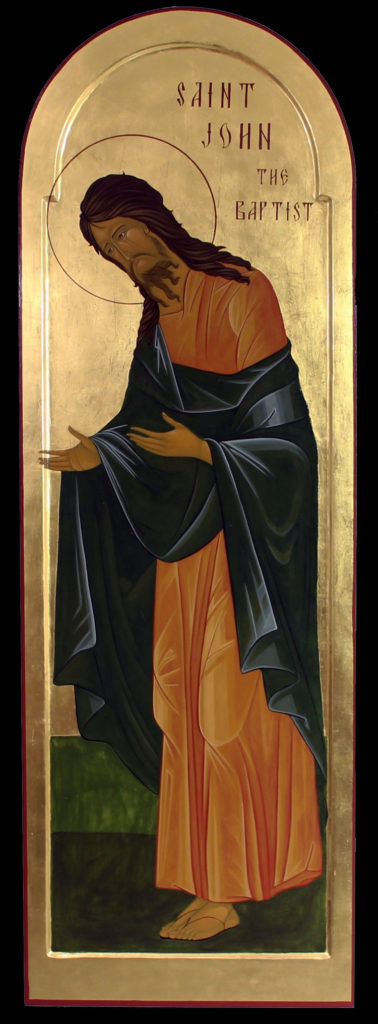The Gospel reading for this Sunday is the account in St. John’s Gospel of the encounter between John the Baptist and the priests and Levites from Jerusalem. Rather than asking him what his goals are, they ask him who he is. “I am the voice of one crying in the wilderness, ‘Make straight the way of the Lord.’”

Our processional hymn — “On Jordan’s bank the Baptist’s cry” — was written in Latin by the French priest and educator Charles Coffin (1676-1749). For a time rector of the University of Paris, Coffin wrote about 100 Latin hymns, in addition to a large amount of Latin poetry. The Hymnal 1940 Companion judges him to have been “an apt disciple of Horace and Ovid” and “the outstanding Latin author France has produced.”
The hymn which our Hymnal editors adapted for our use was first published in 1736 and was soon used for Lauds (early morning prayers) during Advent. Our Hymnal omits Coffin’s original second stanza, which accentuates the cosmic character of the redemption that the Baptist was announcing:
E’en now the air, the sea, the land
Feel that their Maker is at hand;
The very elements rejoice,
And welcome Him with cheerful voice.
This is the last Sunday this year on which we will sing “Creator of the stars of night” as our Sequence hymn. I’ve been scouring the Internet for posted recordings of settings of the tune our hymn is based on, Conditor alme siderum. The latest find was by the French composer organist Jean Titelouze (c. 1563–1633).
During the Offertory, the choir sings a motet by Thomas Tallis (1505-1585). Audivi vocem de caelo venientem is a text traditionally sung during Advent and at the Feast of All Saints. It takes its text from Jeremiah 40:10 and Matthew 25:6. “I heard a voice coming from heaven: come all wisest virgins;
fill your vessels with oil, for the bridegroom is coming. In the middle of the night there was a cry: behold the bridegroom comes.” Tallis’s setting combines simple polyphony with plainchant.
Here is the motet sung by the Taverner Consort & Choir, conducted by Andrew Parrott.
During Communion, the choir sings a setting of one of the Advent O Antiphons by the Tudor-era Scottish-born composer Robert Ramsey (c.1590-1644).
O Sapientia, quae ex ore Altissimi prodiisti,
O Wisdom, coming forth from the mouth of the Most High,
attingens a fine usque ad finem,
reaching from one end to the other,
fortiter suaviterque disponens omnia:
mightily and sweetly ordering all things:
veni ad docendum nos viam prudentiae.
Come and teach us the way of prudence.
Here is a performance of this motet sung by the ensemble Pomerium, conducted by Alexander Blachly.
Our hymns during Communion are “Lamb of God, I look to Thee” and “Jesus, thou joy of loving hearts.” The first of these is taken from a much longer hymn by Charles Wesley. You may read the text for the entire hymn here.
Wesley helped us begin Advent three weeks ago when we sang “Come, thou long-expected Jesus.” Our closing hymn today — the final hymn this Advent — is “O come, O come, Emmanuel.” As explained on the page dedicated to this hymn (linked in the title), this hymn compiles the seven traditional antiphons sung the week before Christmas. This week, I’ve been posting about the settings of these seven antiphons by Arvo Pärt, which you may want to listen to before Christmas Eve.